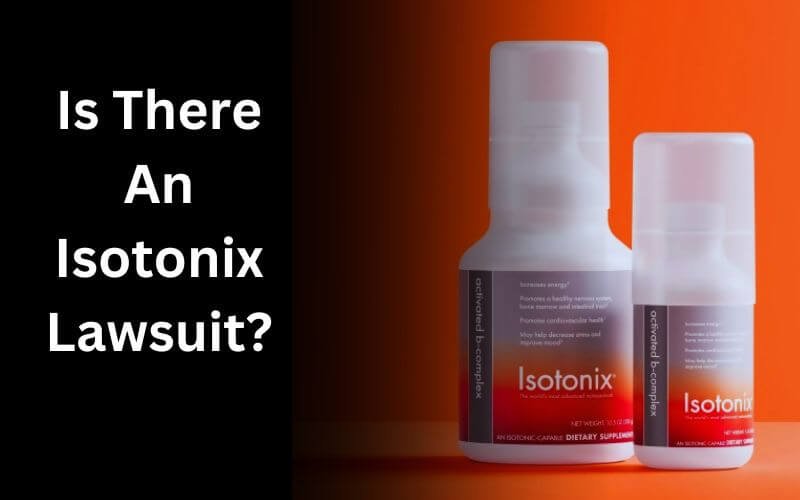The world of health supplements is vast, filled with countless products claiming to enhance well-being. One such product that has caught public attention is Isotonix, a brand known for its powdered supplements designed to be mixed with water. Despite its popularity, Isotonix has found itself in legal controversies, commonly called the “Isotonix lawsuit.” This article will explore the details behind the lawsuit, the concerns raised, and what it means for consumers and the supplement industry.
What Is Isotonix?
Isotonix is a brand of dietary supplements that aims to promote health through a range of products, including vitamins, minerals, and antioxidants. These supplements are sold in powder form and mixed with water, providing an “isotonic” solution that is said to be more efficiently absorbed by the body than traditional pills or capsules.
Isotonic refers to a solution with the same osmotic pressure as bodily fluids. According to the company, this property allows nutrients to be absorbed quickly, potentially giving users more benefits than other supplement formats.
The Isotonix Lawsuit: What Is It About?
The Isotonix lawsuit revolves around allegations that the marketing and claims made by Isotonix about their products were misleading to consumers. The lawsuit has raised questions about the accuracy of the health benefits advertised by the brand and whether or not the company overstated the effectiveness of its supplements.
Critics claim that Isotonix might have used questionable marketing strategies, including:
- Exaggerating the benefits of the isotonic formula.
- Making unsupported health claims about the impact on immune function, energy levels, and overall well-being.
- Suggesting that their supplements can replace or outperform a balanced diet.
These issues have drawn attention not only from consumer protection advocates but also from regulatory bodies.
Who Is Behind Isotonix?
The Isotonix brand is owned by Market America, a company founded in 1992 by JR Ridinger. Market America uses a direct selling or multi-level marketing (MLM) model to distribute its products. Critics and government agencies have often scrutinized the MLM business structure, as it blurs the line between legitimate sales practices and pyramid schemes.
This business model, combined with bold claims about health benefits, contributed to the Isotonix lawsuit, making people question the legitimacy of the brand’s practices.
Health Claims Under the Spotlight
One of the central aspects of the Isotonix lawsuit is the health claims made by the company. Market America, through Isotonix, has suggested that its supplements have unique properties that allow for better absorption and greater effectiveness. The isotonic formula is marketed as superior to regular vitamins because it is absorbed by the body almost immediately.
However, the lawsuit claims insufficient evidence to back these assertions. Critics argue that the difference in absorption rates between isotonic supplements and traditional capsules has not been conclusively proven to lead to better health outcomes. The plaintiffs contend that these claims are designed to manipulate customers into purchasing expensive products that may not differ significantly from other dietary supplements.
Ingredients and Effectiveness: Are the Claims Justified?
Isotonix products often contain various ingredients, such as vitamins, minerals, and botanical extracts. Let’s look at some of the popular ingredients and evaluate their claims.
Common Ingredients in Isotonix Products
- Vitamin C is claimed to boost the immune system, though this is commonly found in many over-the-counter supplements.
- Calcium: Promoted for its bone-strengthening properties, which are well-documented but not unique to Isotonix.
- Coenzyme Q10 (CoQ10): Believed to improve energy levels and heart health.
While these ingredients have potential health benefits, they are not exclusive to Isotonix. The lawsuit challenges whether the isotonic form of these ingredients indeed provides a notable advantage over the same nutrients in other forms.
The Science Behind Isotonix: Is There Any Proof?
The critical claim behind Isotonix is that its isotonic delivery method enhances nutrient absorption. The company asserts that this format allows the nutrients to bypass specific digestive processes, leading to faster and more efficient absorption.
However, one of the issues brought up in the Isotonix lawsuit is whether credible scientific evidence supports these claims. No large-scale, peer-reviewed studies have definitively proven that isotonic supplements are superior to traditional ones.
The lawsuit also claims that the body can generally adapt to absorb nutrients effectively regardless of the supplement format, meaning that the difference in absorption rates may not necessarily translate to better health results.
MLM Structure: A Point of Controversy
Another element of the Isotonix lawsuit is how Market America conducts its business. Isotonix is sold primarily through a network of independent distributors. This MLM model has been criticized for potentially encouraging aggressive sales tactics, where representatives make exaggerated claims to sell products and recruit others into the system.
Problems with the MLM Model
- Recruitment Focus: Many MLMs emphasize recruitment over product sales. This has led to claims that the business operates more like a pyramid scheme.
- Income Misrepresentation: Distributors may misrepresent their earnings, making it appear as if significant income is readily achievable, which is often different for most participants.
The Isotonix lawsuit argues that these business practices mislead distributors into believing they can make a substantial income when, in reality, only a tiny fraction of individuals achieve notable financial success.
Regulatory Concerns: What Do Authorities Say?
Regulatory bodies such as the Federal Trade Commission (FTC) in the United States have strict guidelines on marketing dietary supplements. Companies are required to provide evidence to support any health claims they make. Regarding Isotonix, one of the primary concerns is that the allegations need to be sufficiently substantiated, potentially violating these guidelines.
The Isotonix lawsuit argues that the company has failed to meet these regulatory standards. The lawsuit contends that the marketing materials for Isotonix present unproven health benefits, which could mislead consumers into thinking they are getting a product that provides more than it does.
Consumer Perspective: Experiences and Reviews
Consumers have expressed mixed reviews regarding Isotonix products. While some individuals have reported positive experiences, stating that they feel more energetic or healthier, others remain sceptical about the benefits, particularly in light of the lawsuit and allegations.
Positive Experiences
- Some users report improved energy levels and better digestion after using Isotonix products.
- The powdered format makes it easier for individuals who dislike swallowing pills.
Negative Experiences
- The cost of Isotonix products is considerably higher than that of similar supplements, with no clear evidence of superior results.
- Some consumers feel misled by the bold claims and aggressive marketing tactics, as highlighted in the Isotonix lawsuit.
Table: Pros and Cons of Isotonix Products
ProsCons
Easy to use (powdered form) High cost compared to other supplements
Potential for faster absorption Lack of conclusive scientific evidence
The variety of products available in the MLM sales model raises ethical concerns
Lessons for Consumers: What Can You Learn from the Isotonix Lawsuit?
The Isotonix lawsuit is an essential reminder for consumers to remain vigilant when evaluating health supplements. Here are some key takeaways to consider:
- Do Your Research: Don’t rely solely on marketing materials to decide on a product. Look for independent reviews and scientific studies.
- Be Skeptical of Big Claims: If a product claims to be revolutionary or more effective than competitors, proceed cautiously. Always question whether the claims are supported by credible scientific evidence.
- Understand the MLM Structure: If you’re considering becoming a distributor, be fully aware of the challenges and risks associated with MLMs. Most people need to make substantial income through these models.
Isotonix and Market America: Where Do They Stand Now?
Following the Isotonix lawsuit, Market America has faced increased scrutiny. While the lawsuit is ongoing, the company has made efforts to ensure compliance with regulatory standards and has adjusted some of its marketing language.
The future of Isotonix will likely depend on how the lawsuit progresses and whether the company can substantiate its claims. Regardless, the controversy has notably impacted the brand’s image.
The Importance of Regulatory Oversight in the Supplement Industry
The Isotonix lawsuit also underscores the importance of regulatory oversight in the dietary supplement industry. With so many products on the market, regulatory bodies must ensure that companies are not misleading consumers.
Without stringent regulation, companies risk making bold health claims without scientific backing, which could lead consumers to spend Money on products that may not provide the promised benefits.
Final Thoughts on the Isotonix Lawsuit
The Isotonix lawsuit is a critical reminder of the importance of transparency, regulation, and scientific evidence in the supplement industry. While Isotonix products might be convenient and potentially beneficial for some, the legal challenges raised in the lawsuit call into question the validity of the company’s claims.
For consumers, it is essential to approach dietary supplements with caution. Always prioritize products with strong, independent scientific backing, and be wary of claims that sound too good to be true. The story of Isotonix is a valuable case study on why it’s so important to stay informed and sceptical about health products.
The future of Isotonix depends mainly on the outcome of the lawsuit. Still, more importantly, it highlights a much broader issue—the need for accountability and consumer protection within the health supplement market.































